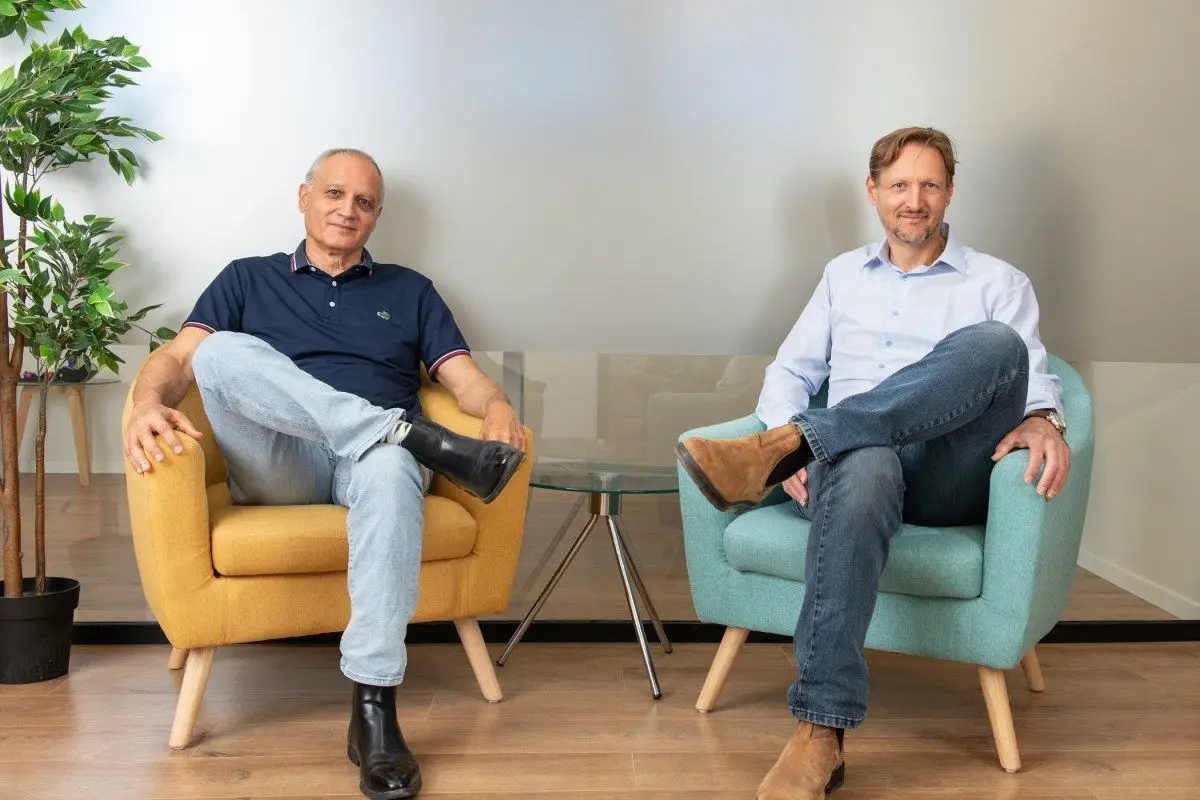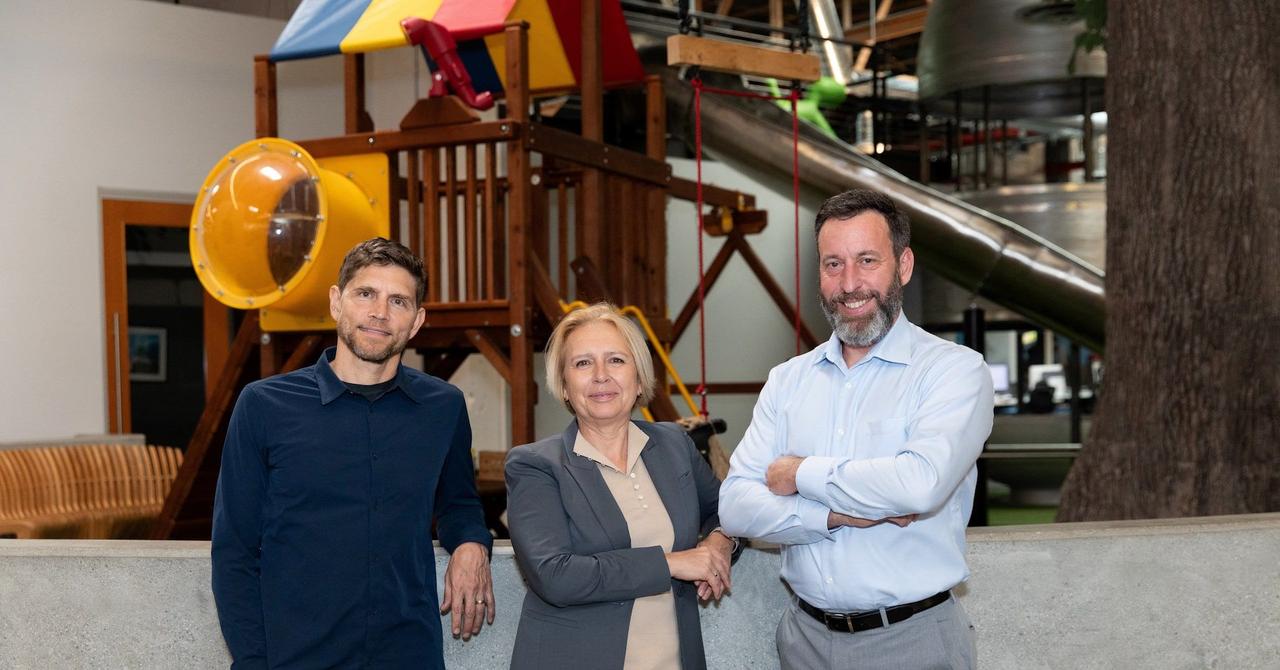NeoLogic Raises $10M to Develop Energy-Efficient CPUs for AI Data Centers
2 Sources
2 Sources
[1]
NeoLogic wants to build more energy-efficient CPUs for AI data centers | TechCrunch
When NeoLogic started building its more energy-efficient CPUs for AI servers, folks in the industry told its founders Avi Messica and Ziv Leshem that their idea wasn't viable. "Most of the people that we have met say it's impossible," Messica told TechCrunch. "Some of them told us, at the time, that the innovation is impossible because you cannot innovate in logic synthesis. You can't innovate in circuit design. It's too mature." Israel-based NeoLogic nevertheless set out to prove them wrong, and the fabless semiconductor startup has been building a server CPU that uses more simplified logic -- how a chip processes information -- with fewer transistors and logic gates to run faster while requiring less power. NeoLogic was founded in 2021 by Messica, CEO, and Leshem, CTO, who together have 50 years of experience in the semiconductor industry. Leshem spent decades working on chip design at companies like Intel and Synopsis, while Messica focused on circuit design and the manufacturing side. "We co-founded this company more than four years ago because Moore's Law was dead," Messica said, referring to the 1960s observation that the number of transistors on microchips doubles every two years. Around a decade ago, Messica said, companies stopped trying to scale transistors down in size, because transistors had gotten so small, there wasn't much more progress to be made there. But, he says, NeoLogic wasn't convinced. The startup is working with two hyperscaler partners on the design of the server CPUs, but Messica would not disclose their names. The company plans to have a single-core test chip by the end of the year, and hopes to get its server CPUs into data centers by 2027. NeoLogic recently raised a $10 million Series A round led by KOMPAS VC with participation from M Ventures, Maniv Mobility and lool Ventures. The company will use the funds to expand its engineering team and continue developing its CPUs. The funding round comes as data centers are straining existing energy resources with no relief in sight. The ongoing AI boom has data center power usage expected to double in just the next four years. Messica hopes that NeoLogic's energy-saving potential will help make its server CPUs too attractive for the market to ignore. "It affects everything," Messica said of the potential energy savings. "If you talk about next-generation data centers, it affects the construction costs; it affects the amount of capital that you'll invest because you can shave off roughly 30% of the cost. And it affects the water usage. It has an impact on society, and basically that was our vision roughly five years ago."
[2]
NeoLogic raises $10M to develop power-efficient server processors - SiliconANGLE
NeoLogic raises $10M to develop power-efficient server processors NeoLogic Ltd., a startup that hopes to make processors more efficient by reducing their transistor counts, has raised $10 million in funding. The company announced the Series A round today. It detailed that KOMPAS VC led the investment with participation from M Ventures, Maniv Mobility and lool Ventures. A processor consists of numerous transistor collections called gates. Those gates are almost always made using a technology called CMOS. A CMOS gate includes two transistors with different electrical properties: one requires a positive charge to switch from 0 to 1 while the other requires a positive charge. Israel-based NeoLogic has developed a new chip design approach that it calls CMOS+. According to the company, it combines standard CMOS gates with so-called reduced-complexity gates that are made using different technologies. NeoLogic says that its approach can reduce the size of processors by 40% while halving their power consumption. One way CMOS+ boosts processing efficiency is by reducing the number of transistors that engineers must include in chips. According to NeoLogic, the technology can enable a threefold reduction in a chip's transistor count under certain conditions. The fewer transistors that are in a chip, the less power it consumes. NeoLogic says that its technology also improves processors' energy-efficiency in other ways. By default, standard CMOS gates have limited fan-in, which means they can only process a small number of data points in parallel. That slows down their processing speed. Boosting fan-in usually requires engineers to implement complex circuit designs that can significantly increase a chip's power usage. NeoLogic says that its CMOS+ technology addresses those trade-offs with so-called single stage gates. According to the company, those gates can process significantly more data points in parallel than a standard CMOS circuit while using less power. NeoLogic's CMOS+ technology also features a buffer design optimized for energy efficiency. Buffers are circuits in which a processor keeps the data that it's actively using in calculations. The company says that its design boosts power-efficiency by increasing the surface area of buffers. NeoLogic was founded in 2021 by Chief Executive Officer Avi Messica (pictured, left) and Chief Technology Officer Ziv Leshem (right). Messica told EE Times Europe that processors based on CMOS+ will lend themselves to running artificial intelligence models. The company believes that its technology can perform inference using less power than graphics cards. According to NeoLogic, its engineers are using CMOS+ to develop a series of central processing units for servers. The company hopes to produce a single-core test CPU later this year. It plans to start deploying CMOS+ processors in data centers by 2027.
Share
Share
Copy Link
NeoLogic, an Israeli startup, has secured $10 million in Series A funding to develop innovative, energy-efficient CPUs for AI data centers using their proprietary CMOS+ technology.
NeoLogic's Innovative Approach to CPU Design
NeoLogic, an Israel-based fabless semiconductor startup, is making waves in the tech industry with its ambitious goal of creating more energy-efficient CPUs for AI data centers. Founded in 2021 by Avi Messica (CEO) and Ziv Leshem (CTO), the company has recently secured a $10 million Series A funding round led by KOMPAS VC, with participation from M Ventures, Maniv Mobility, and lool Ventures
1
2
.
Source: TechCrunch
The CMOS+ Technology
At the heart of NeoLogic's innovation is their proprietary CMOS+ technology. This novel approach combines standard CMOS gates with reduced-complexity gates, potentially reducing chip size by 40% while halving power consumption. The technology aims to address the limitations of Moore's Law by focusing on innovative logic synthesis and circuit design
2
.Key features of CMOS+ include:
- Reduced transistor count: Up to a threefold reduction under certain conditions.
- Improved fan-in: Single-stage gates that can process more data points in parallel while using less power.
- Optimized buffer design: Increased surface area of buffers for better power efficiency.
Challenging Industry Skepticism
When NeoLogic began its journey, the founders faced significant skepticism from industry experts. Many believed that innovation in logic synthesis and circuit design was no longer possible due to the maturity of the field. However, Messica and Leshem, with their combined 50 years of experience in the semiconductor industry, were determined to prove otherwise
1
.Development Timeline and Goals
NeoLogic is currently working with two undisclosed hyperscaler partners on the design of their server CPUs. The company has set an ambitious timeline for development:
- End of 2025: Production of a single-core test chip.
- 2027: Deployment of server CPUs in data centers.
Related Stories
Potential Impact on AI Infrastructure
The timing of NeoLogic's innovation is crucial, as data centers are facing increasing strain on energy resources due to the ongoing AI boom. Power usage in data centers is expected to double in the next four years, making energy-efficient solutions more critical than ever
1
.NeoLogic's technology could potentially:
- Reduce construction costs for next-generation data centers by approximately 30%.
- Decrease capital investment requirements.
- Lower water usage in data centers.
Industry Implications and Future Prospects
If successful, NeoLogic's CMOS+ technology could have far-reaching implications for the AI and data center industries. The company believes that its processors will be particularly well-suited for running AI models, potentially performing inference tasks more efficiently than current graphics cards
2
.As the demand for AI computing power continues to grow, innovations like NeoLogic's could play a crucial role in making data centers more sustainable and cost-effective. The success of this technology could potentially reshape the landscape of AI infrastructure and chip design in the coming years.
References
Summarized by
Navi
Related Stories
Recent Highlights
1
ByteDance's Seedance 2.0 AI video generator triggers copyright infringement battle with Hollywood
Policy and Regulation

2
Demis Hassabis predicts AGI in 5-8 years, sees new golden era transforming medicine and science
Technology

3
Nvidia and Meta forge massive chip deal as computing power demands reshape AI infrastructure
Technology








